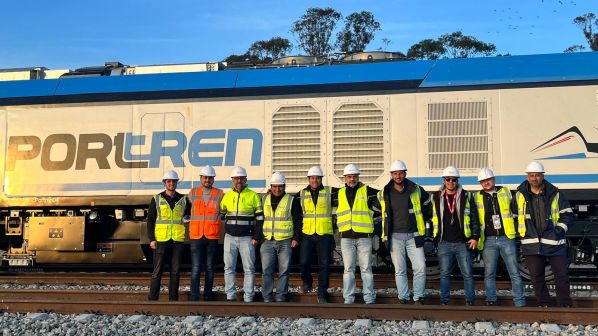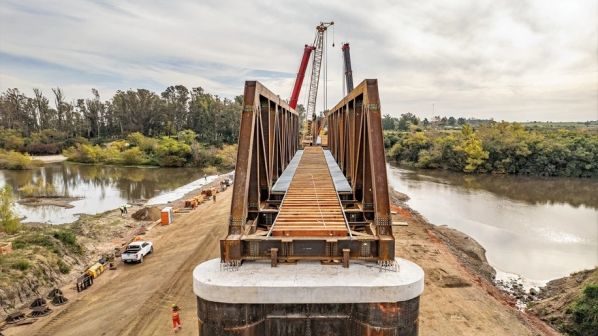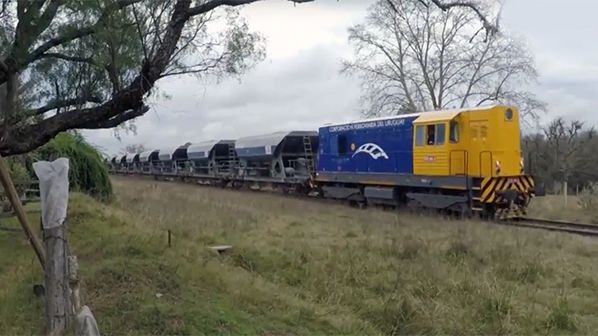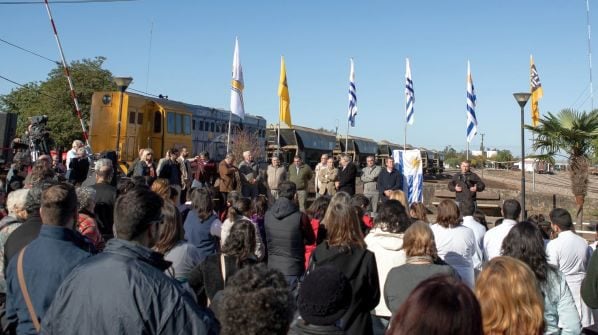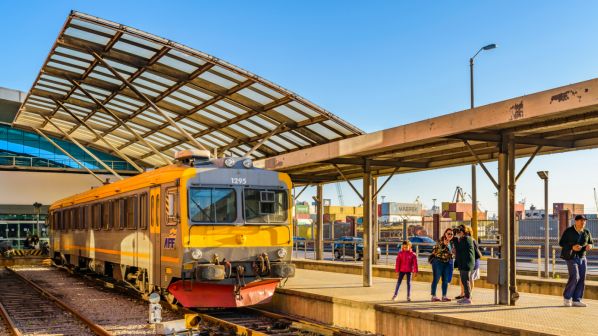THE first phase of dynamic testing on Uruguay’s Central Railway project has been successfully completed, with locomotives operating along a 20km section between Florida station, Florida Norte and Apartadero La Cruz.
The project to improve connectivity and integration of the interior of the country with its capital, Montevideo, includes the rehabilitation and maintenance of 273km of railway between Montevideo and Paso de los Toros.
The main goal of the project is to enable the transport by rail of cellulose pulp and chemical products from the port of Montevideo to Finnish forestry company UPM-Kymmene’s planed second plant, UPM 2.
The work consists of upgrading and then maintaining 273km of railway between the Port of Montevideo and Paso de los Toros, which will enable freight trains with a maximum axleload of 22.5 tonnes to operate at up to 80km/h.
The line will also be used by passenger services between Montevideo and 25 de Agosto. The line will be double track for the first 26km from Montevideo and single track thereafter with 12 passing loops.
The total cost of the project is $US 2bn and it is being undertaken by the Grupo Vía Central (GVC) consortium and the Consorcio Constructor del Ferrocarril Central (CCFC), both made up of the Uruguayan companies Saceem and Berkes, Sacyr of Spain and NGE of France.
Commissioning of the line is a major step in Uruguay’s transport infrastructure development programme, with the event attended by representatives from the Ministry of Transport and Public Works and the National Directorate of Railway Traffic.
The line will be equipped with ERTMS, making Uruguay the third country in South America to install this technology after Brazil and Chile.
A consortium of CAF Signalling and Revenga Smart Solutions is installing ERTMS Level 1 as well as signalling and telecommunications systems, including 10 electronic interlockings, 20 object controllers, 175 level crossing systems, local operating stations and an operations control centre for the 273km line.
CAF Signalling has also supplied ERTMS onboard equipment for the locomotives.
Upgrading work is due to completed before the end of the year, and testing with loaded trains is scheduled to begin in early 2024.
“This project has been a challenge for all involved,” says CAF Signalling general manager, Mr Jon Alzate. “Success is the result of close collaboration. Moreover, its complexity in terms of signalling demonstrates the high adaptability and flexibility of our teams in any type of environment and country.”
